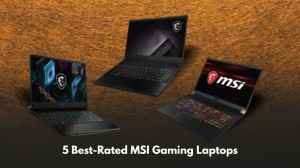The RAM (Random Access Memory) is a key factor in both overall speed and performance when purchasing a new laptop or upgrading an old one. But how much RAM do you really need? This depends on how you use it, whether you're an average user, studying, playing games, or even a professional. We are going to break down optimal RAM-sizes of laptops in this comprehensive guide, depending on specific tasks, such as web browsing, video editing, gaming, and programming. In addition, you will know how you can see the difference between 4GB, 8GB, 16GB, 32GB RAM, how it impacts multitasking and when is better to upgrade. Having an idea of how much laptop RAM you need can save you money and time, while making a valuable addition to your gadget zone. So before you make a choice that how to choose the right laptop in 2025 you will be well versed with this one most important matter of storage.
Understanding RAM and Why It Matters
What is RAM and Why is it important?
Some commonly used types of memory include RAM (Random Access Memory) which is a high-speed and temporary storage that is used by your laptop to hold data in order to perform a task. In contrast to your hard drive or SSD, RAM does not store files on a permanent basis--it simply stores the information that your computer requires at the current moment. As an example, browsing a web browser can store active applications and tabs in the RAM so that they are easily accessed during use.
How RAM Influences Speed and Performance
The answer to question best RAM size for laptop is simple, the larger your laptop is able to store RAM, the larger amount of data it will be able to hold to easily access. When your laptop is short on RAM, it may fall back on the slower storage drive as “virtual memory” and the overall system will lag. This means:
- Quickly opens different applications
- Well suited to multi tasking
- More fluid video editing and gaming
RAM vs Storage Differences
Your RAM is like your desk space, and storage is like your filing cabinet, the more room you have on the desk, the more stuff you can work on at once. One must not mix up RAM with storage:
- RAM: A type of fast memory used to execute programs.
- Storage (HDD or SSD): The memory files and program locations are stored.
Understanding RAM Size For Different Use Case?
4GB RAM -Most basic task-friendly
A 4GB RAM should be able to do the same when using the capacity of the laptop only to browse the web, use email, and office programs. Nonetheless, it is less suitable to work with multitasking and run contemporary software. It typically comes on low-end, or Chromebook laptops.
8GB RAM: Preferred for Students and Office work
It remains a most people's sweet spot. It is ideal:
- Operation of Microsoft Office or Google Workspace
- Multitab surfing
- Watching videos and simple photo editing
- This is what is suggested as a best minimum to have a good run on Windows 10 or 11.
RAM -16GB: Great in Gaming and Multi-Tasking
It is ideal that promises a great performance to gamers, video editors, or workers with large files as the size of RAM is 16GB. It enables you to:
- Play demanding games without lag
- Transform videos smoothly.
- Multiple heavy applications on the go at the same time Keeping various heavy applications open simultaneously
32GB+: Ram for Professionals and heavy workloads
32GB or higher is best with 3D modeling and potentially big datasets or video production. It is also commendable where your laptop is concerned as you can be assured of the future update that might be available on your software as well as the more demanding software up to a number of years in the future.
Laptop Recommended RAM by Popular User Types
Students RAM
8GB RAM will be sufficient for the student who is carrying out some research work, attending online courses, or performing any other task. At 16GB, you should get one, in case you like code or design.
Business professionals RAM
To work efficiently with email, presentations and cloud applications, the ideal is 8 to 16 GB of RAM among the business users who constantly switch tasks.
RAM For Gaming Laptop
AAA games that are played these days need 16GB RAM in order to play smoothly. Streaming games or using mods may require additional stability that 32 GB can provide.
Video-editing and Design RAM
When dealing with tasks such as 4K video editing, rendering, or even 3D modeling, 32GB RAM will guarantee much faster actions and more efficient workflow.
Kinds of RAM in Laptops
If you have a deep understanding of the laptop storage you might be introduced to terms like DDR3, DDR4, DDR5, so lets understand which one is better?
- DDR3: Elderly specification, slower performance, power-hungry DDR3
- DDR4: It is most common in modern laptops, and faster.
- DDR5: Best on high-end laptops and most future-safe.
The RAM is installed step by step.
- Put your laptop off and disconnect it.
- Take off the back panel.
- Search the RAM slots.
- Install the new RAM module at 45-degree angle.
- Fit into the holes by pressing down until it clicks.
- Now close the panel and restart your laptop.
Check out these models from top laptop brands that offer different RAM sizes for diverse use cases.




